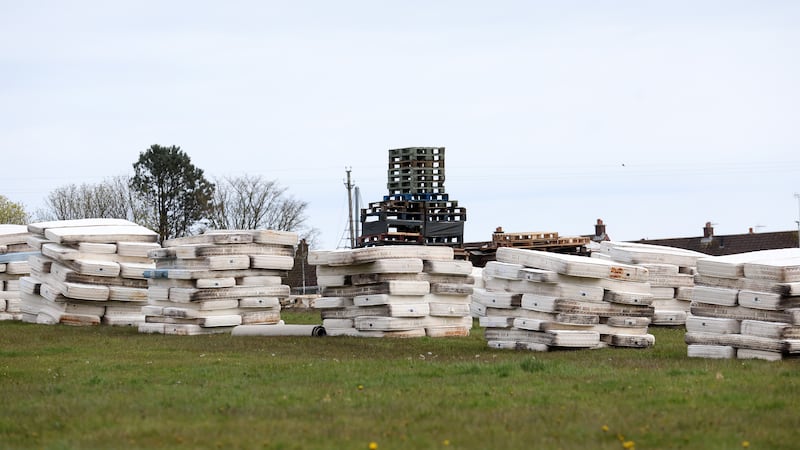THE decision by Bank of Ireland to shut more than half of its remaining 28 branches in Northern Ireland merely underlines the continuing inexorable march towards digital banking.
It means more than a third of all bank branches in the north will have shut within the past five years as lenders cut back their networks to boost flagging profits.
And it leaves the 'big four' grouping of Danske Bank, Ulster Bank, Bank of Ireland and First Trust (now operating as AIB) with just 82 branches combined.
That's a staggering comparison to nearly 300 banks at the turn of the Millennium, with every town and many villages once boasting their own branch.
Allied to that, a recent study by Which? found that ATM cash machines around the UK have been shutting down at a rate of 300 every month.
The banking trend risks shutting out many people - especially the elderly, non-IT literate and socially deprived - from vital financial services and affecting their ability to access their own cash.
The stealth at which financial institutions are abandoning bricks and mortar for clicks and apps - with the futures of hundreds of banking staff as collateral damage - has caused wrath among the public, unions and politicians.
Bank branches play a crucial role within communities, serving consumers and businesses alike.
READ MORE: Unions round on Bank of Ireland after lender confirms major branch cull
The fear is that many people will be left behind by the digital transition, and that when banks do shut their doors, they will also be shutting out their customers from important banking services.
To add to the perfect storm, Covid-19 has placed unprecedented strain on the cash system, because the almost mandatory usage of contactless payments means fewer people are carrying notes.
When Bank of Ireland's latest closures do kick in before the summer, it will leave it with just 13 branches in the north.
This in turn will have a profound impact on the economy of larger urban populations like Lisburn, Banbridge and Ballymena at a time when Chancellor Rishi Sunak is meant to be pump priming high streets after the devastating blows that they have been subjected to as a result of the pandemic.
The approach taken by banks to assess the impact of branch closures is seemingly going unchecked, and opponents argue that they cannot be allowed to treat their Access To Banking Standard commitments as a window-dressing exercise.
Kevin Hollinrake, chairman of the All Party Parliamentary Group on Fair Business Banking, said: "Branch networks will still be used for years, and banks have a responsibility to provide a solution for customers who rely on them."
The Financial Conduct Authority has held working groups with major banks to determine how they will maintain access to cash for customers.
But a decision has not been reached on what this will entail, and in the meantime more towns will see their banking choices irrevocably eroded.







